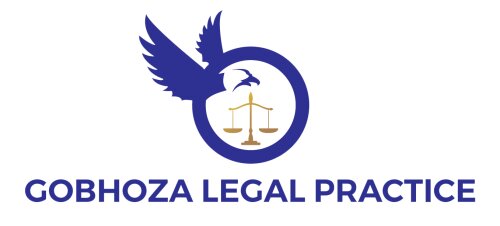Best Sanctions & Export Controls Lawyers in Botswana
Share your needs with us, get contacted by law firms.
Free. Takes 2 min.
Or refine your search by selecting a city:
List of the best lawyers in Botswana
About Sanctions & Export Controls Law in Botswana
Sanctions and export controls are a critical aspect of Botswana's legal system, especially for individuals and businesses engaged in international trade. These laws regulate the movement of goods, technology, and funds across Botswana's borders. Sanctions refer to specific restrictions imposed typically to comply with international obligations, such as those mandated by the United Nations or other international bodies. Export controls involve the licensing and monitoring of goods, technologies, and services leaving the country, particularly those that may have strategic, military, or dual-use (civilian and military) applications. The overall aim is to ensure national security, fulfill international commitments, and prevent illicit trade or activities that could harm Botswana's interests or international reputation.
Why You May Need a Lawyer
Navigating the complex field of sanctions and export controls can be challenging. Legal assistance is often required in the following situations:
- Importing or exporting goods that might be subject to controls or prohibitions
- Engaging in business with individuals, companies, or countries subject to sanctions
- Applying for export licenses or permits
- Responding to investigations or enforcement actions by authorities
- Drafting contracts involving cross-border transactions
- Conducting due diligence to ensure compliance with local and international laws
- Ensuring compliance with anti-money laundering and counter-terrorism financing regulations
- Receiving or sending funds internationally which may trigger sanction-related controls
- Exporting goods or technology in sectors such as minerals, military equipment, or dual-use goods
- Seeking practical advice to minimize the risk of inadvertent violations
Local Laws Overview
Botswana’s legal framework for sanctions and export controls is shaped by both domestic legislation and international commitments. The main areas of focus include:
- International Sanctions: Botswana is a member of the United Nations and the African Union and implements sanctions resolutions from these bodies through domestic legislation.
- Customs and Excise Regulations: The Customs and Excise Duty Act, as well as the Botswana Unified Revenue Service (BURS), regulate the import and export of goods, requiring licenses for controlled items.
- Prohibited and Restricted Goods: Specific lists outline goods that cannot be imported or exported without appropriate approvals, such as arms, endangered species, select chemicals, and encryption technologies.
- Anti-Money Laundering (AML) and Combating the Financing of Terrorism (CFT): Financial institutions and exporters must screen transactions and trading partners for potential sanction violations.
- Penalties: Violations can result in fines, forfeiture of goods, or even imprisonment. Regulatory bodies rigorously enforce these laws to maintain Botswana’s position as a responsible member of the global community.
Frequently Asked Questions
What are sanctions in the context of Botswana's law?
Sanctions are restrictions or prohibitions on certain trade, financial transactions, or business dealings that Botswana enforces, often to comply with United Nations or African Union resolutions or to address specific national security concerns.
Who is responsible for administering export controls in Botswana?
The Botswana Unified Revenue Service (BURS), together with other government ministries such as the Ministry of Investment, Trade and Industry, is responsible for administering and enforcing export control regulations.
Do all exports from Botswana require an export license?
No, only specific goods, technologies, or services listed as controlled items require an export license. Common examples include military goods, certain chemicals, and items that could have dual civilian and military use.
How do I know if a country or entity is subject to sanctions?
Sanctioned countries or entities are typically listed by the government in official notifications or gazettes. Botswana implements United Nations and African Union sanctions, so checking these bodies’ lists is also recommended.
What penalties exist for ignoring sanctions or export controls?
Penalties may include confiscation of goods, substantial fines, revocation of business licenses, or criminal prosecution resulting in imprisonment, depending on the severity of the violation.
Can small businesses be affected by sanctions and export controls?
Yes, any business or individual involved in cross-border trade or transactions needs to ensure compliance with sanctions and export control laws, regardless of the business size.
Is there an appeal process if export licenses are denied?
Applicants denied an export license may appeal the decision through established administrative review channels within the relevant government ministry or seek judicial review if appropriate.
Are financial transactions subject to export controls?
Certain financial transactions, especially those involving sanctioned entities or countries, may be restricted or monitored as part of Botswana’s compliance with international obligations on sanctions, AML, and CFT controls.
Can legal advice help prevent accidental violations?
Yes, a knowledgeable lawyer can help interpret complex regulations, conduct due diligence, set up compliance programs, and provide guidance to minimize the risk of unintentional violations.
Do these laws change frequently?
Sanctions and export control measures can change in response to international developments or new legislative amendments, so it is important to stay informed and consult legal experts regularly.
Additional Resources
If you require more information or assistance, consider consulting the following resources:
- Botswana Unified Revenue Service (BURS) - For customs and export control regulations
- Ministry of Investment, Trade and Industry - For licensing and trade regulation matters
- Financial Intelligence Agency (FIA) - For guidance on anti-money laundering and counter-terrorism financing compliance
- The United Nations Sanctions List - For updates on globally sanctioned individuals and entities
- Local Chambers of Commerce and Industry - For education and support regarding best practices in compliance
- Qualified Local Attorneys - For tailored legal advice and representation
Next Steps
If you are involved in international trade, finance, or cross-border transactions and are unsure about your legal obligations under Botswana’s sanctions and export controls laws, it is recommended to:
- Gather relevant documentation about your business or transaction
- Review any official government publications related to your specific goods, technology, or trading partner
- Schedule a consultation with a lawyer experienced in sanctions and export controls
- Prepare a list of questions or concerns for your legal advisor
- Implement compliance procedures as recommended to protect your interests and reputation
Staying informed and seeking timely legal guidance will help you navigate these regulations safely and effectively.
Lawzana helps you find the best lawyers and law firms in Botswana through a curated and pre-screened list of qualified legal professionals. Our platform offers rankings and detailed profiles of attorneys and law firms, allowing you to compare based on practice areas, including Sanctions & Export Controls, experience, and client feedback.
Each profile includes a description of the firm's areas of practice, client reviews, team members and partners, year of establishment, spoken languages, office locations, contact information, social media presence, and any published articles or resources. Most firms on our platform speak English and are experienced in both local and international legal matters.
Get a quote from top-rated law firms in Botswana — quickly, securely, and without unnecessary hassle.
Disclaimer:
The information provided on this page is for general informational purposes only and does not constitute legal advice. While we strive to ensure the accuracy and relevance of the content, legal information may change over time, and interpretations of the law can vary. You should always consult with a qualified legal professional for advice specific to your situation.
We disclaim all liability for actions taken or not taken based on the content of this page. If you believe any information is incorrect or outdated, please contact us, and we will review and update it where appropriate.
Browse sanctions & export controls law firms by city in Botswana
Refine your search by selecting a city.















